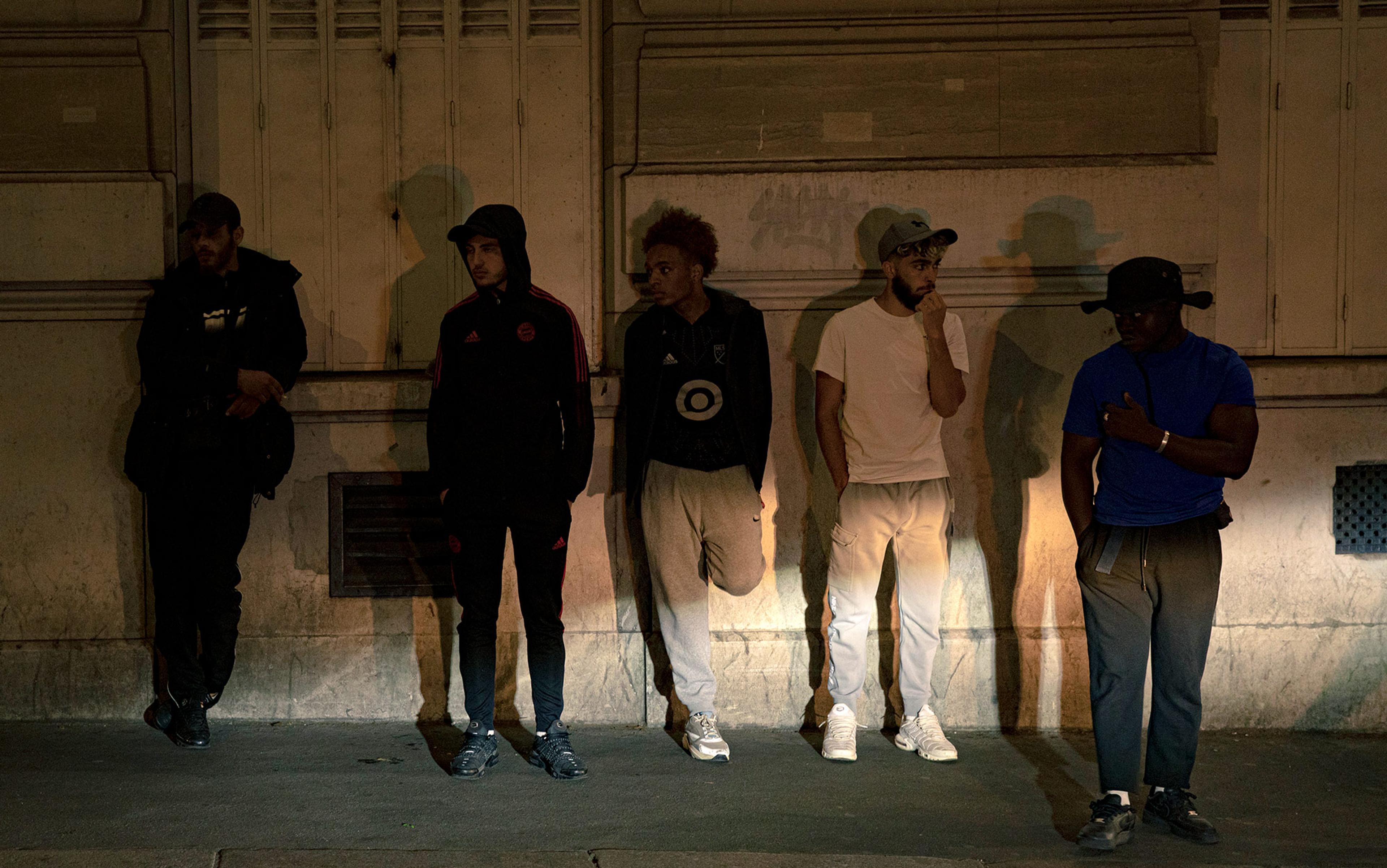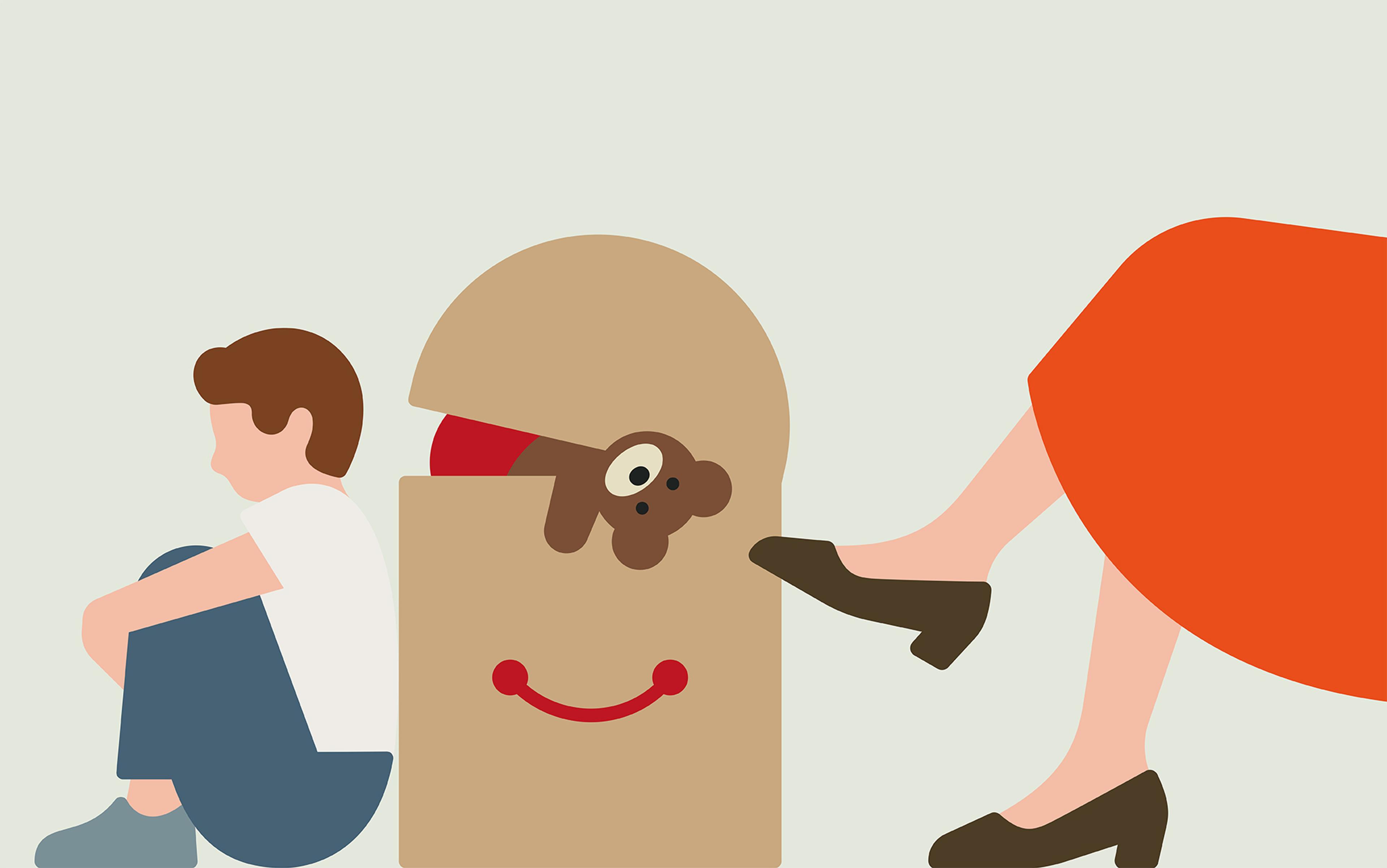There is a contradiction in our ordinary ideas about moral responsibility. Let’s explore it by considering two examples. Killer, our first character, is at a party and drives home drunk. At a certain point in her journey, she swerves, hits the curb, and kills a pedestrian who was on the curb. Merely Reckless, our second character, is in every way exactly like Killer but, when she swerves and hits a curb, she kills no one. There wasn’t a pedestrian on the curb for her to kill. The difference between Killer and Merely Reckless is a matter of luck.
Does Killer deserve more blame – that is, resentment and indignation – than Merely Reckless? Or, do Killer and Merely Reckless deserve the same degree of blame? We feel a pull to answer ‘yes’ to both questions. Let’s consider why.
On the one hand, we believe that Killer deserves more blame than Merely Reckless, because it’s only Killer who causes the death of a pedestrian. Plausibly, a person can deserve extra blame for a bad result of her action that she reasonably could have been expected to foresee, and causing the death of a pedestrian by driving drunk is that kind of bad consequence. So, even though they deserve an equal degree of blame for their callous and reckless driving, Killer deserves more blame overall, because only Killer’s foreseeable moral risk turns out badly.
On the other hand, we believe that Killer and Merely Reckless must deserve the same degree of blame, because luck is the only difference between them, and luck, most of us think, cannot affect the praise and blame a person deserves. It would be unfair for Killer to deserve more blame due merely to what happened to her, because moral judgment is about a person and not what happens to her. So, they must deserve the same degree of blame.
In summary, our commonsense ideas about moral responsibility imply the contradiction that Killer and Merely Reckless do and do not deserve the same amount of resentment and indignation. More generally, our commonsense ideas about moral responsibility have the paradoxical implication that luck in results can and cannot affect how much praise and blame a person deserves.
Nevertheless, the vexation runs deeper. Luck clearly affects the results of actions but, less obviously, as I’ll demonstrate, luck can also affect actions themselves.
Fumbles, our third character, is in every way like Killer and Merely Reckless. They all get drunk and decide to drive home in the dark, and they all walk on autopilot to their cars. Fumbles takes a slightly different path to her car from the others, trips over a patch of uneven lawn, and drops her keys down a drain. Fumbles is forced to call a cab to take her home. Of course, it’s a matter of luck which path each person takes, because they’re all oblivious to the relative merits of the different routes to their cars. If Fumbles hadn’t taken that path and lost her keys, she would’ve driven drunk just like Killer and Merely Reckless.
Night Blind, our fourth character, has many of the same beliefs and character traits as Killer, Merely Reckless and Fumbles. She differs from those three mainly by having horrendous night vision, and this incapacity distinguishes her character by making driving at night unthinkable for her. When Night Blind gets drunk in the evening, she doesn’t even entertain the idea of driving home. Of course, her having bad night vision is a matter of luck, like the good vision of the others. If Night Blind had better vision (and if driving drunk had also been an option for her), we might suppose that she would’ve decided to drive home drunk just like Killer, Merely Reckless and Fumbles.
The contradiction at the heart of our thinking extends to these new characters. On the one hand, we believe that luck affects the degree of blame deserved by all four characters. We believe that Killer and Merely Reckless deserve more blame than Fumbles, because they drive home drunk, and Fumbles does not. We also believe that Killer, Merely Reckless and Fumbles deserve some degree of blame, but that Night Blind, who got a cab home, deserves no blame at all. In other words, we think that luck affects the degree of blame each person deserves.
On the other hand, we believe that luck cannot affect the blame that Killer, Merely Reckless, Fumbles and Night Blind deserve, and so believe that all four deserve precisely the same degree of blame. The salient differences between these four characters is something outside of their control: the location of the pedestrian, tripping over uneven ground in the dark, or having bad night vision. But they each would’ve driven drunk if they had been in the same circumstance and had the same constitution. So, they all must deserve the same degree of blame.
Some philosophers believe that both sides of the contradiction I’ve outlined are undeniable and leave it as a paradox. Most philosophers, however, are not satisfied with paradoxes. As you might expect, many of them have attempted to iron out this inconsistency in our thinking. Some suggested solutions are pure. They allow luck to affect the moral responsibility in all four characters, or they preclude luck from affecting moral responsibility in all four characters. Other solutions are mixed, because they allow luck to affect moral responsibility in some but not other characters.
The skeptical response is a pure view that bars luck from affecting moral responsibility in all four characters; every kind of luck must be factored out of moral evaluation. But luck saturates who we are (think of Night Blind), what we do (think of Fumbles), and what results from what we do (think of Killer and Merely Reckless). So, because luck must be factored out of moral evaluation, and luck permeates everything that we are, do and bring about, no one is morally responsible for anything.
One problem with the skeptical response is that it’s an empty victory; it’s like winning a battle by sacrificing most of what we care about. After all, the skeptical response undermines our self-conception as morally responsible agents, and it requires practical revision of praising and blaming as individuals, and practical revision of rewarding and punishing as governing authorities. It is, then, worth exploring whether other responses can dissolve the paradox in a way that preserves what we care about.
The character response is that people fundamentally deserve praise and blame only for their character traits. This view implies that Killer, Merely Reckless and Fumbles deserve equal blame, because they have the same character traits that give rise to their decision to drive drunk. Whether they kill a pedestrian or have an opportunity to drive drunk is irrelevant to their degree of blameworthiness. Night Blind, of course, lacks those traits; she wouldn’t contemplate driving drunk because she wouldn’t contemplate driving at night and she drinks only at night. For this reason, Night Blind deserves no blame on this account. The character response, then, is a mixed view. It precludes luck in results and circumstance from affecting moral responsibility in Killer, Merely Reckless and Fumbles, and it allows luck in constitution to affect Night Blind’s moral responsibility by saving her from disgrace.
An unattractive feature of the character response, however, is that it appears to imply that when people act out of character, they don’t deserve praise or blame. Intuitively, however, many of us think that people are morally responsible for at least some of their uncharacteristic actions. Additionally, the character response implies that it is always impermissible to praise and blame strangers, because we don’t know much about the character of strangers. Even so, at least most of us think that it is at least possible to praise and blame a stranger in an apt way. Given these difficulties, let’s consider the next solution.
If luck can affect moral responsibility for actions, then it can also affect moral responsibility for consequences
The acts response is that people fundamentally deserve praise or blame only for what they actually do. On this view, luck makes no difference to the blame that Killer and Merely Reckless deserve, because they perform the same kind of action. But luck makes a difference between the moral responsibility of Killer and Merely Reckless, on the one hand, and Fumbles and Night Blind, on the other, because luck in circumstance and constitution prevents Fumbles and Night Blind from acting in the same way as the other two did that night. The acts response, then, is a mixed view that bars luck in results from affecting the blame a person deserves, but allows luck in circumstance and constitution to affect it.
Although I view the acts response as more plausible than the other proposals I’ve outlined so far, I do think it’s an unstable position. After all, if luck can affect moral responsibility for actions, then we have at least some reason to think that the same luck can also affect moral responsibility for consequences. In terms of our examples, the fact that Merely Reckless deserves more blame than Fumbles, even though the salient difference between them is a matter of luck, provides some reason to think that Killer deserves more blame than Merely Reckless even though the only difference between them is also a matter of luck. Let’s, then, turn to consider the final response.
The moral luck response is that some kinds of luck in results, circumstance and constitution affect the praise and blame a person deserves. On this view, Killer deserves more blame than Merely Reckless, because only Killer causes the death of the pedestrian; Merely Reckless deserves more blame than Fumbles because, of the two, only Merely Reckless drives drunk; and Fumbles deserves more blame than Night Blind because, of the two, only Fumbles decides to drive drunk.
Given the problems that arise with the skeptical, character and acts responses, we have a preliminary reason to think that the moral luck response is correct. But if the moral luck response is correct, why is there a contradiction in our thinking in the first place? That is, how can we explain the common intuitive reaction that, for example, Killer and Merely Reckless deserve the same degree of blame when the moral luck response implies that they deserve different amounts of blame?
The answer to this question comes from properly distinguishing two kinds of commonsense moral evaluation that we tend to run together – namely, being to blame for bringing about an event and being a bad person. What makes someone a good or a bad person? Plausibly, the moral quality of a person is determined by her character and so by her actual voluntary actions and what she would voluntarily do. On this view, Killer and Merely Reckless are no better or worse persons than each other, because they voluntarily do the same kind of thing. Additionally, Killer, Merely Reckless and Fumbles are also no better or worse as persons than one another, because Fumbles would’ve voluntarily done what Killer and Merely Reckless do if she had been in their circumstances. (Night Blind is relevantly different from those three. She has a different character as evidenced by the unthinkability of driving drunk at night, because she never drives at night, and she drinks only at night.)
This distinction between being to blame for an outcome and being a bad person allows us to discriminate between the various cases. Killer isn’t any worse a person than Merely Reckless; but that doesn’t show that they both merit the same amount of blame, because blame isn’t just about the kind of person you are. Likewise, although Merely Reckless is no worse a person than Fumbles is, it doesn’t then follow that they are equally blameworthy.
Being a good or a bad person is about one’s character; being blameworthy for an event is about being accountable for what you have done in the world. As an illustration, consider the example of Works Tonight. She has the same moral character as Killer, Merely Reckless and Fumbles, and so would’ve acted in the same way as those three did if she had gone to the party. But she was called in to work that night, and so missed the party altogether. Plausibly, Works Tonight isn’t blameworthy for doing anything related to driving drunk, but Works Tonight is just as bad a person as Killer, Merely Reckless and Fumbles.
Once we separate blame for actions and outcomes from blame for character, we can see how we got into this conflicted state in the first place.
Which of these responses to the problem of moral luck is correct matters greatly at least for praise and blame in our dealings with other people, for the morality of some criminal laws, and for the morality of a final judgment after death if there is such a thing.
But no matter which of these responses (or perhaps another not considered here) turns out to be correct, there’s a lesson we can all learn about luck, moral pride and moral humility.
One form of moral pride involves the belief that we’re self-made people. Moral pride can make us feel superior to others and more liable to find fault with them, because the belief that all persons are self-made implies that others’ bad traits are entirely of their own making. For the same reason, moral pride can also undermine feelings of compassion towards those who have had difficult formative histories (such as early emotional trauma), faced hard moral decisions (social pressure in Nazi Germany, for example), or had minimal help from others in the moral life (if, for example, they haven’t had good role models).
But our reflections on Killer, Merely Reckless, Fumbles, Night Blind and Works Tonight should shatter the illusion that we’re self-made people. We’re all significantly – but not entirely – shaped by luck. The recognition that we’re not wholly self-made should help us to credit others for their roles in our moral lives and perhaps most importantly to be compassionate and generous to those who are down on their luck. After all, with different luck, we might have shared their fate.
In Defense of Moral Luck: Why Luck Often Affects Praiseworthiness and Blameworthiness by Robert Hartman is published via Routledge.






